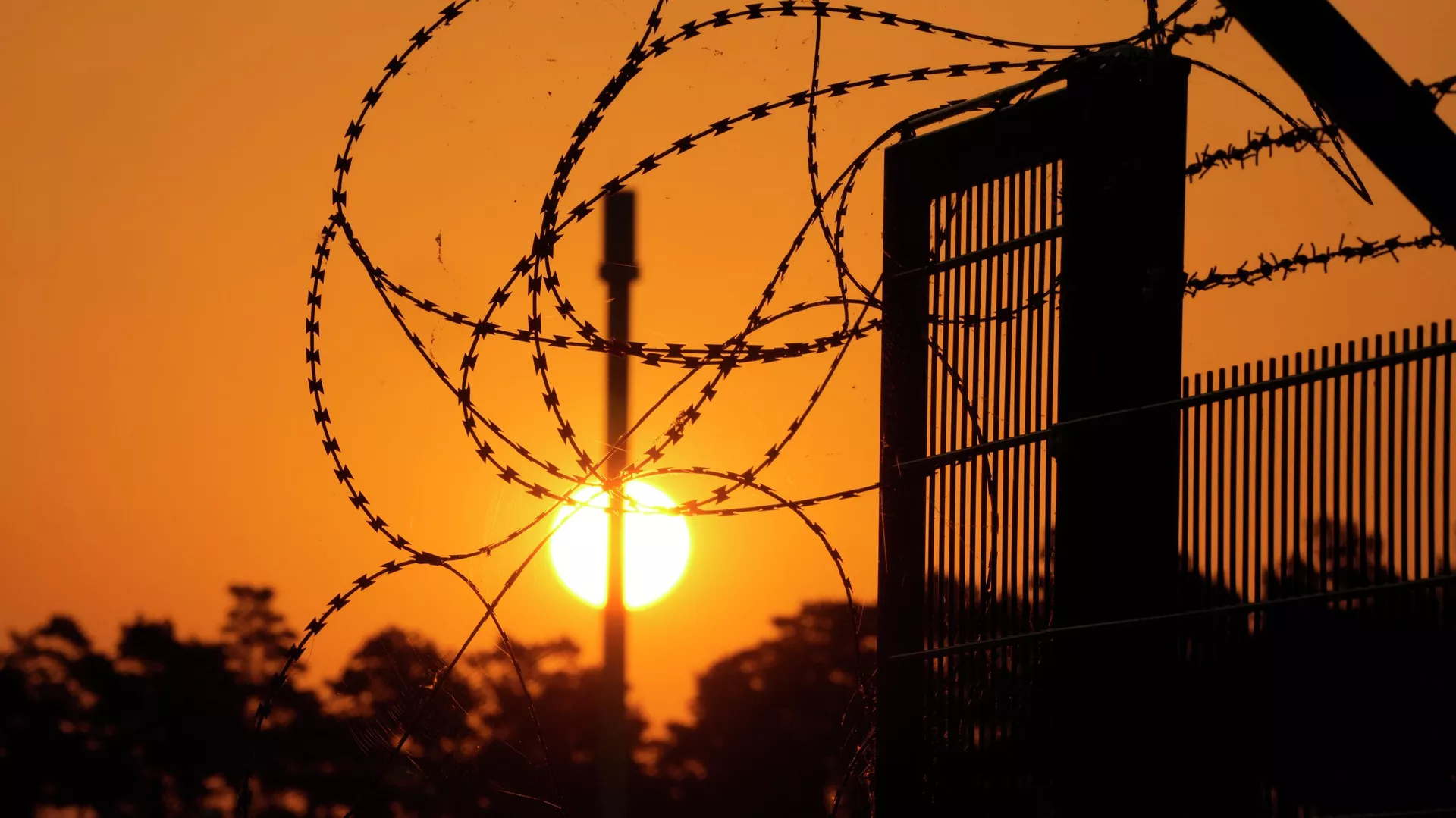
Sunset behind a wired fence. Photo: AP/Markus Schreiber.

Orinoco Tribune – News and opinion pieces about Venezuela and beyond
From Venezuela and made by Venezuelan Chavistas

Sunset behind a wired fence. Photo: AP/Markus Schreiber.
By Olga Borodkina – Sep 17, 2022
While many countries in Africa are experiencing energy poverty, suffering from electricity cuts, and are working on regional energy projects, the West appears to be skeptical of African nations’ strive for self-sufficiency in this area.
The Nigeria-Morocco Gas Pipeline (NMGP) project, an initiative of Nigeria and Morocco that was initially proposed in December 2016, officially kicked off with the signing of a memorandum of understanding (MoU) between Nigeria, Morocco, and the Economic Community of West African States on Thursday in Rabat.
The 5,600-kilometer pipeline, running across 13 African countries, will originate from Brass Island (Nigeria) and deliver gas to northern Morocco, where it will be connected to the existing Maghreb European Pipeline (MEP), through which the gas will subsequently go to Spain.
Regional Pipeline Infrastructure Nigeria-Morocco © Photo : Twitter/@nnpclimited“Some of the benefits include the creation of wealth and improvement in the standard of living, integration of the economies within the region, mitigation against desertification and other benefits that will accrue as a result of the reduction in carbon emission,” NNPC CEO Mele Kyari stated, speaking at the signing ceremony.
Foreign Minister of Nigeria Visits Venezuela (+Joint Commission Established)
Central Africa Pipeline Project
The NMGP follows another African initiative that was launched on September 8 at the Central Africa Business Energy Forum, hosted by Cameroon, where Central African countries signed an ambitious deal to create a regional oil and gas pipeline network by 2030, including the construction of three multinational oil and gas pipeline systems, at least three refineries, and gas-fired power plants linking 11 countries, according to project documents cited by Reuters.
Equatorial Guinea, Cameroon, Gabon, Chad, Angola, the Democratic Republic of Congo, and the Republic Congo – members of the ECCAS which signed the pipeline agreement – are all oil producers who possess vast oil and gas reserves. However, lack of refining capacity and funding to modernize the plants has left them dependent on imported refined products.
“Russians are the best when it comes to pipelines. African ministers plan to be in Russian Energy Week and discuss this. They are also inviting Russian energy players to African Energy Week to have bilateral talks on how to use Russian or Chinese expertise to make this work,” Ayuk told Sputnik.
Speaking of Russia’s potential participation in African initiatives, and in the above mentioned NMGP in particular, the Russian United Metallurgical Company noted that it might supply metal products to meet the needs of the construction of the Nigeria-Morocco Gas Pipeline.
According to a statement published by the Russian Ministry of Energy following a meeting of First Deputy Minister of Energy Pavel Sorokin and Chairman of the African Energy Chamber N.J. Ayuk, Russia is ready to develop joint projects with African countries in order to increase energy supplies to African markets.
“Providing African countries with high-quality energy resources, creating conditions for the development and growth of cooperation in energy, increasing trade between Russia and African countries is an important task of our interaction. We are ready to continue to develop joint projects, thanks to which it is possible to significantly increase the supply of resources to local markets, to help generally strengthen the economic security of our friendly countries,” Sorokin said.
West Opposes African Energy Projects Due to ‘Environmental Risks’
As African countries continue to develop much-needed domestic energy projects, on September 15, the EU Parliament passed a resolution claiming that the East African Crude Oil Pipeline (EACOP) project, which is being developed by Uganda and Tanzania, could lead to “human rights violations” and pose “the social and environmental risks.”
EACOP stretches 1,443km from Lake Albert in western Uganda to the Tanzanian port of Tanga on the Indian Ocean and could become of a great importance for Africa, where more than 600 million people, or 43 percent of the continent’s population, lack access to electricity, as per the International Energy Agency.
Uganda’s Deputy Speaker of Parliament Thomas Tayebwa, hitting back at the EU, pointed out that the resolution represents the “highest level of neocolonialism and imperialism” against the sovereignty of Uganda and Tanzania.
The US is Turning Oil-Rich Nigeria into a Proxy for its Africa Wars
Tanzania’s Energy Minister January Makamba reaffirmed the country’s intention to implement the EACOP project, criticizing the resolution and describing it as based on misinformation and deliberate misrepresentation of key facts on environment and human rights protection.
“We care more about our country than other people do. We will continue to make sure this project protects local communities, protects the environment, and meets our international standards so that we will continue, but we commit to do,” Tanzania’s energy minister said.
The verbal spat over EACOP comes on the heels of the recent statements made by US climate envoy John Kerry, who in an interview with Reuters on the sidelines of an African environment ministers’ conference in Dakar, Senegal also warned against investing in long-term gas projects in Africa.
(Sputnik)